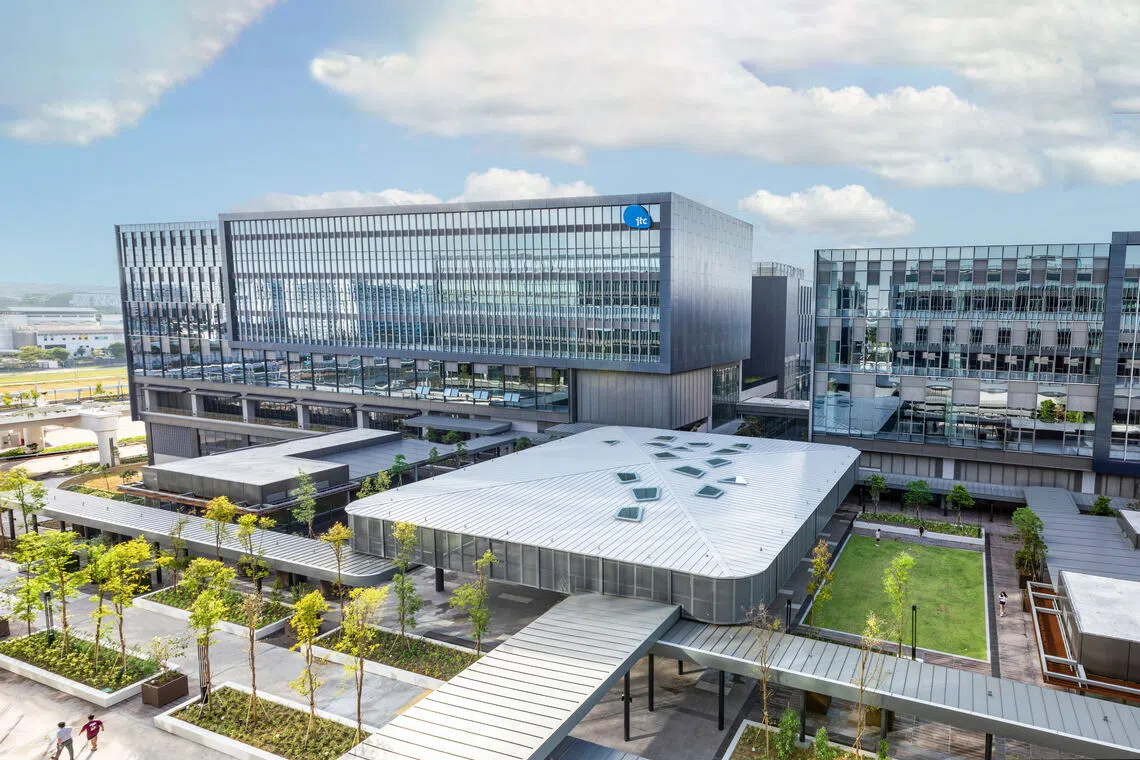Singapore’s manufacturing edge hinges on expertise, facilities and talent: Jeffrey Siow
The acting transport minister outlines three areas to prepare industries for the rapidly evolving future

[SINGAPORE] Building robust networks of expertise, facilities and talent is crucial for the Republic to remain competitive in advanced manufacturing and thus capture emerging opportunities, Acting Minister for Transport Jeffrey Siow said on Wednesday (Oct 15).
“Advanced manufacturing is increasingly important for developed economies like Singapore,” he said at the opening of the Industrial Transformation Asia-Pacific 2025 (Itap) trade event at the Singapore Expo.
The emergence of artificial intelligence is supercharging manufacturing processes and equipment, and many key sectors in Singapore – including semiconductors, healthcare, speciality chemicals and aerospace – are feeling the pressure to transform, he added.
To prepare Singapore’s industries for this rapidly evolving future, he outlined three areas, as part of the government’s broader Economic Strategy Review.
Network of expertise
First, Singapore needs a network of manufacturing expertise, which it can build by tapping its existing “lighthouse” facilities – sites that are exceptionally productive and sustainable through digital transformation.
Singapore currently hosts six such facilities, with GlobalFoundries’ plant here being the latest addition. Siow noted that the wafer fab’s strategic partnerships with solution providers and academia have raised labour productivity by 40 per cent and reduced new product prototyping time by 30 per cent.
Navigate Asia in
a new global order
Get the insights delivered to your inbox.
“More manufacturing facilities like GlobalFoundries’ here in Singapore and the region will help us expand our influence as a hub for advanced manufacturing, and create solutions that will benefit companies across the value chain,” he said.
Network of facilities
Second, Siow said, Singapore must create vibrant innovation ecosystems where technology firms, research institutes, training providers and factories can collaborate seamlessly across the innovation value chain.
One example is the Jurong Innovation District, which was launched in 2019 as an advanced manufacturing hub.
SEE ALSO
Siow noted the completion of Bulim Square, the latest addition to the district. JTC in a separate release said the development will serve equipment and precision component manufacturers, supporting key sectors as well as solution providers for emerging sectors such as robotics and automation.
Bulim Square adds more than 110,000 square metres of “ready, sustainable factory space to the advanced manufacturing ecosystem”, JTC said. The development, which sits on a 4.5-hectare site, was completed in two phases: the first in November 2024 and the second earlier this month.
It currently has 23 tenants, with 11 already in operation and the rest at various stages of fit-out work.
By co-locating research and development as well as prototyping and production capabilities within one integrated environment, “we can nurture innovation end-to-end, moving ideas more quickly from concept to market”, Siow said.

Network of talent
Third, a future-ready workforce is essential for capturing new growth opportunities in an increasingly risky economic landscape, the acting transport minister said.
In such a landscape, Singapore must welcome global talent “even more than before”. “Talent bring new ideas, deep expertise and diverse perspectives which we do not have for the new industries that we want to participate in,” he said.
This brings about multiplier effects through knowledge transfer and, ultimately, the creation of better jobs for Singaporeans, he added.
At the same time, Singapore must help its citizens acquire new skills through improved school curricula and a strengthened SkillsFuture movement.
“This new economy will be more volatile, with greater churn and a faster pace of change,” said Siow.
“But if we are able to position Singapore to embrace the growth opportunities that emerge, we will be able to better attract new industries, bring higher value-add to our economy, and attract new jobs for a new generation of Singaporeans.”
Itap, first launched in 2018 as an Asian edition of German trade fair Hannover Messe, has grown into a highly regarded platform connecting global manufacturers and suppliers with Asia-Pacific markets.
This year’s event, which runs from Wednesday to Friday, expects to welcome more than 16,000 trade visitors and nearly 300 exhibiting brands from around the world.
Decoding Asia newsletter: your guide to navigating Asia in a new global order. Sign up here to get Decoding Asia newsletter. Delivered to your inbox. Free.
Copyright SPH Media. All rights reserved.






